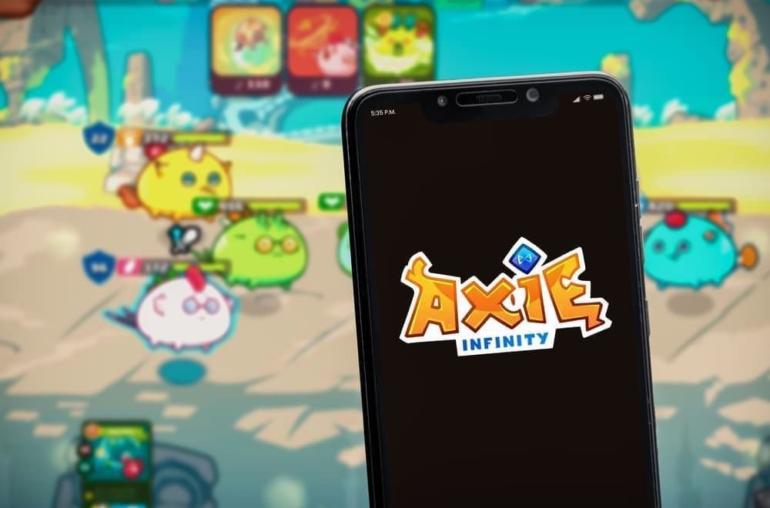Raise your hand if you’ve got a selfie in front of an iconic European landmark, a hastily purchased shot glass from an airport gift shop, or a Hard Rock Cafe t-shirt from a Disney-fied destination.
So do most travellers.
Though there is no shame in having the same photos and keepsakes as your fellow globetrotters, it’s getting increasingly harder to return home with a memento as one-of-a-kind as your memories.
Sadly, the selfie is becoming as cliche as the souvenir, but as the tech and travel worlds collide, NFTs may be a literal – though far from physical – way to own a truly unique holiday.
No need to leave room in your luggage: NFT collectables and clubs grant access to exclusive travel experiences with no baggage required.
Early adopters like Marriott International are testing out NFTs in several ways, including hotel booking partnerships, travel perks and fundraising drives. Exclusive access and a members-only mentality is a driving force in the NFT space, replicating the attractive offers that traditional airline and hotel membership clubs have lured travellers in with for decades.
NFTs – or non-fungible tokens – are no new phenomenon. These digital assets that live on the blockchain are nearly a decade old, though only recently has the concept been embraced in the mainstream.
In October 2021, a report by consulting group Verified Market Research estimated that the global NFT market was worth €11.3 billion and may rise at a rate of 33.7 per cent annually to hit €231 billion by 2030.
And such high expectations have finally made companies in the travel space take notice.
Imagine planning a trip to Rio de Janeiro, but instead of booking your stay through a conventional website, all you need is your NFT to gain access to a private hotel that only 10,000 travellers will ever be able to sleep at.
No booking confirmation required. Not even a room key is necessary.
Such is the premise of the Lucky Ape Travel Club, which was founded in Tampa, Florida, in 2021. It was arguably the first NFT company to specifically tap into travel, occupying a sweet spot where the emerging metaverse crosses over with the real world.
How is LATC NFT “a valuable trading asset”❓
3⃣ words: Multiple. Revenue. Streams.
👉 Learn more about it in the video below
🚀 Mint yours here: https://t.co/KV0x3bPFll#nft#nftcommunity#LATC#NFT#travelpic.twitter.com/y20oTt1RhB
This ‘room key’ application of NFTs is most likely to extend its stay in the travel sector. Earlier this year, Casa de Campo Resorts & Villas in the Dominican Republic became the first hotel partner of Pinktada, an NFT platform that is hoping to shake up the hospitality industry through the application of blockchain technology.
Together they’ve launched transferable RNTs (Room Night Tokens), which allow guests to access competitive, discounted rates on certain room types, alongside the flexibility to sell or swap tokens if their travel plans change.
“Blockchain and NFTs are changing the hotel industry as we know it,” says Jason Kycek, senior VP of sales and marketing at Casa de Campo.
‘Your dream vacation is just a bid away’: while it may sound like a bit of a ruse to NFT sceptics, the tagline for Black Platinum Gold says everything you need to know about the world’s first luxury travel auction platform.
“I strongly believe that cost and value are two very different things,” says Viola Palescandolo, founder and CEO. “BPG was created to empower travel dreamers to be go-getters, a platform where you can ‘fight’ for what you want.”
AUCTION 📣Indonesia, #Bali | @alilavuluwatu
Now open for bids: https://t.co/woqaPmiyYP
I͟t͟ ͟i͟n͟c͟l͟u͟d͟e͟s͟:͟
• 3 nights / 2 guests
• One Bedroom Pool Villa
• Breakfast
• Butler service
• Priority entrance + transfer to Savaya
• Valid until Dec 2023@AlilaHotels
These luxurious escapes need not come at a premium, at least for some experiences. For instance, a recent week-long auction for a three-night stay in Jamaica started at just €330. The winning bidder would receive accommodations for two at Geejam Hotel (usually €435/night) with breakfast included (usually an extra €60 per night).
Of course, more elaborate experiences warrant higher bids. Another auction offers 13 days in Kenya, with everything from domestic flights and luxury accommodations for two to safari activities and a private guide – all at a starting bid of €16,600.
“BPG is unique because its NFTs will be stored in crypto wallets to symbolise the truly unique experience that happened in the real world.”
Many of these auctions offer experiences that are as one-of-a-kind as the NFT itself. For instance, the ‘Unlocking Uniqueness On Lake Como’ NFT will send its holder and 15 guests to Italy‘s Villa Breakwater for New Year’s Eve week. Meals, a mixologist, a photographer and a branded NFT video are among the spoils.
With partners including Nobu, The Ritz-Carlton, and members of the Small Luxury Hotels of The World, Black Platinum Gold’s curated itineraries offer NFT collectors and discerning travellers alike a way to purchase, collect and experience an exclusive luxury holiday.
Critics point out the environmentally damaging impact of NFTs. Similarly to cryptocurrencies, most NFTs are ‘minted’ or verified using a blockchain – a digital ledger of transactions – called Ethereum. It relies on a huge computer network that consumes huge amounts of energy.
More ‘eco-friendly’ alternatives to Ethereum exist, but making payments using cryptocurrency is inherently carbon-heavy.
Despite this, some destinations are using NFTs to launch eco initiatives. In Bhutan, the new Trans Bhutan Trail has launched a collection of NFTs to fund sustainability projects along the route. These NFTs offer hikers exclusive experiences and community connections – adding another coveted element to join the rarely shown-off passport stamp.
Meanwhile, one hotel in Paris, the Lancaster, has joined forces with Plastiks to prove its commitment to sustainability with NFTs attached to individual rooms. Each one comes with a Plastic Recovery Guarantee linked to Green Mining, a reverse logistics company removing plastic waste in Brazil.
No matter how NFTs take shape, it’s clear that this trend will influence how, where, and why we travel in a real world that’s making room for the metaverse.
The NFT club trend is explored in more detail in Expedia and Euronews Travel’s Trend Report.
Share this article


